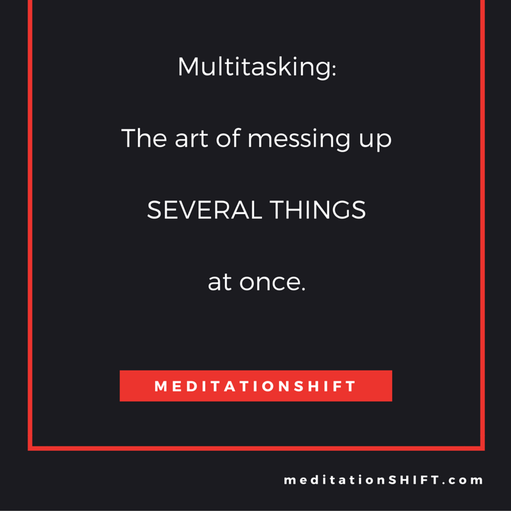|
note: we link to our free guide to mindfulness and meditation at the bottom of the page (no email required). When it comes to multitasking, we associate it with external activities. For example, studying or working while talking on the phone, taking notes, browsing social media, and listening to the radio.
Hopefully your multitasking habit isn't that bad, but we all do it to some extent. What we don't consider, though, is an aspect of multitasking that's inherent to our nature: letting our attention be controlled by a wandering, compulsive mind. Our minds always want to be somewhere other than right here and now:
If your attention is focused on your mind (which it usually is), you are being forced to multitask. In any given minute, you will be jumping between thoughts about friends, enemies, bills to pay, movies, your favorite sports team, Donald Trump running for President of the U.S., and a multitude of other subjects. Recent findings cited in Psychology Today put the loss of productivity from multitasking as high as 40%. Study after study confirms that it simply doesn't work when it comes to external activities. How much worse is that made by the multitasking our minds force on us? If your mind is running around like a puppy exploring a new house, and your attention is following it everywhere it leads, it's going to be more detrimental than trying to work and browse Facebook at the same time. A consistent meditation practice and bringing mindfulness to your daily life will help. They allow you to move your attention away from your compulsive mind and its non-stop activity, and focus it on the present moment and task at hand. And if you control where your attention goes, you will no longer be at the mercy of the next thought, emotion, or urge that pops into your head. What are you trying to "cope" with?
Coping doesn't work - addressing the root cause does. We'll show you how. Comments are closed.
|
